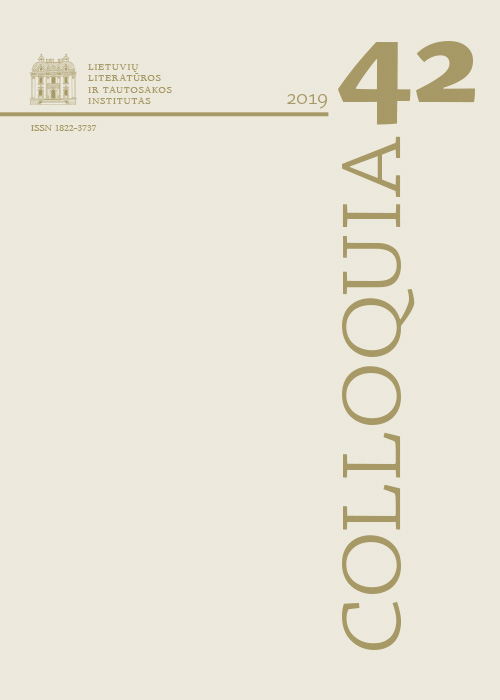Tomas Veclova‘s Poem as a Site of Memory
Abstract
The article employs Pierre Nora’s concept “a site of memory.” Using the term in the least strict sense, Nora’s metaphorical writing gives way to free interpretations. Tomas Venclova has realized that he lives in post-Auschwitz and post-Gulag time, and that totalitarianism has not yet been defeated. Therefore the poem must become a place to fight off the totalitarianism and a memory site of poet’s generation which disobeyed the system. The latest poetry by Venclova can be characterized by a diverse strategy of securing memory space. Anna Akhmatova, Joseph Brodsky, Osip Mandelstam, and Boris Pasternak are important because of their poetics and resistance to the totalitarian system. The untold events that took place in the Soviet Union, names and destinies, as well as poet’s personal history are important in Venclova’s poetry. Author’s comments enhance a poem as a site of memory. Located at the bottom of the poem, they provide more detailed context.
In comments, epigraphs, and dedications, Venclova names true or fictitious people of his generation. The article emphasizes that the history in Venclova’s poetry is illuminated by metaphysical questions.
Downloads
Most read articles in this journal
- Donata Mitaitė, Su meile ir ilgesiu parašyti atsiminimai , Colloquia: Vol. 51 (2023): Colloquia
- Gintarė Bernotienė, Renaldas Gudauskas, Vytautas Landsbergis, Rasa Juknevičienė, Andrius Kubilius, Emanuelis Zingeris, Donata Mitaitė, Vytautas Ališauskas, Laurynas Peluritis, “Can I Still Accomplish Anything?” Vytautas Kubilius and the Role of Intellectual and Critical Thinking in Nation-Building , Colloquia: Vol. 52 (2023): Colloquia
- Donata Mitaitė, The 1930s Generation’s Conformism and Illusions , Colloquia: Vol. 37 (2016)
- Donata Mitaitė, A Historian on Poetry , Colloquia: Vol. 40 (2018)
- Donata Mitaitė, Illuminated by a Meteor , Colloquia: Vol. 36 (2016)
- Donata Mitaitė, Kas atrandama kasinėjant , Colloquia: Vol. 33 (2014)




